Meet Our Fellows & Staff
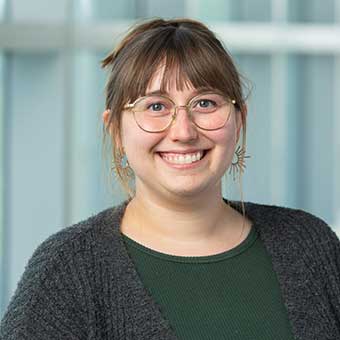
Caroline Barotta is a postdoctoral researcher in the physics department, where she works in the Yevick Lab. She’s broadly interested in how structures emerge from chaos in soft, squishy systems. Though she’s originally from Georgia, Caroline has spent over a decade in the Boston area. As a science communicator, Caroline cares about how we tell the story of science - what ideas we communicate, how we bring our own voice to scientific writing, and how we can make our science accessible to different audiences. Previously, she’s helped teach classes on science writing, worked as a public speaking tutor, and written pop science TikToks. She’s excited to help you develop your communication skills with the SciComm Lab!
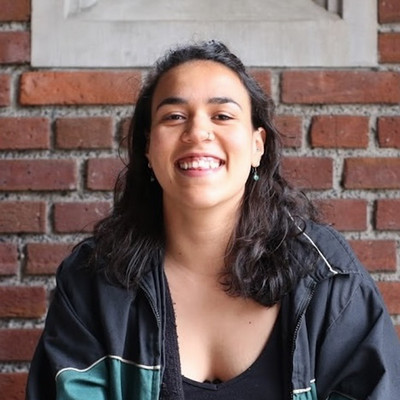
Natasha Baas-Thomas is a Neuroscience PhD student in the Katz Lab, where she studies taste perception and related behaviors in rats. Through teaching and presenting, she has learned to communicate her research in ways that connect with a wide range of audiences. One of the most rewarding aspects of science for her is sharing knowledge and building connections with others. She understands that effective science communication can feel difficult to master but believes that with the right support, anyone can improve. Wherever you are in your journey, Natasha is excited to help you with your next presentation, application, or writing project.
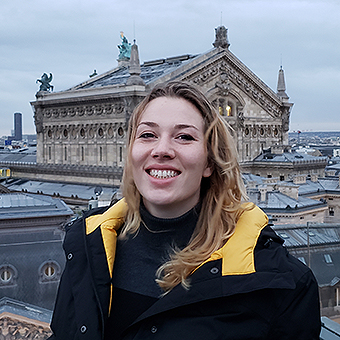
Kathleen Maigler is a PhD candidate studying communication between the hypothalamus and primary taste cortex in the Katz lab. Kathleen cherishes the quality mentorship and teaching that defines Brandeis and aims to contribute to that effort as much as possible. Her transition from molecular to systems neuroscience has nurtured her appreciation for distilling complex ideas into digestible articles. Together you will create accessible and interesting presentations, essays, and applications.
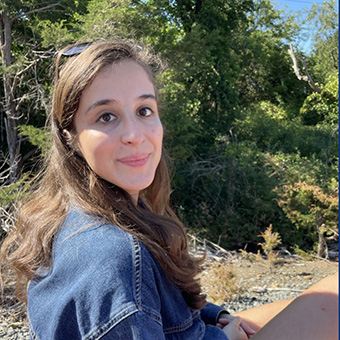
Teodora (Tedy) Markova is a PhD candidate in the Neurochemistry and Cognition Lab, where she uses neuroimaging techniques to investigate the impact of brain changes associated with age and Alzheimer’s Disease pathology on emotion and memory. Though she initially found presenting daunting, Tedy has learned that effective science communication takes time, practice, and support from those around you – it is now one of her favorite aspects of science! Tedy got her bachelor’s in psychology at McGill University and received her master’s in neuroscience right here at Brandeis. In the past, she has shared her work with a wide range of audiences, including high school students, family, Brandeis undergraduates, and experts in her field. Throughout her academic journey, Tedy has been fortunate to have mentors and colleagues who have provided invaluable support. She is excited to pay it forward and assist others in achieving their science communication goals.
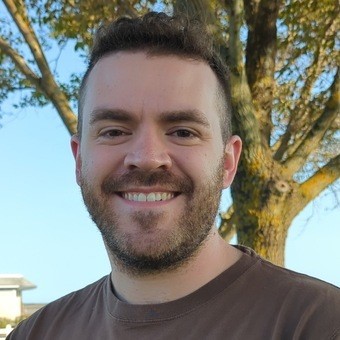
Ian is a Physics PhD candidate in the Rogers Lab. He studies how enzymes behave in the presence of their substrate while bound to DNA nanostructures. Originally flip-flopping between biology and physics before finally landing on biophysics, he understands the nuances of interdisciplinary scientific research and how to communicate it to a broad audience. In mentoring several students through research, Ian has focused on making science less intimidating and more accessible to everyone. He thinks science communication is the most fun part of the job! He hopes to impart that excitement to other scientists at all levels, and is here to help you with personal statements, research proposals, lab reports, or whatever else you may need in communicating science!
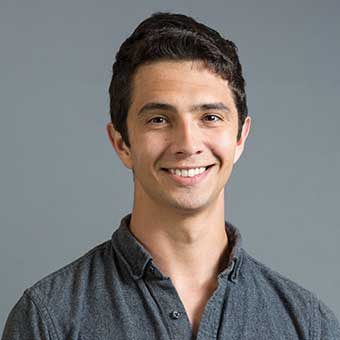
Trent Quist is a PhD candidate in biochemistry and biophysics working in the bioinorganic chemistry lab of Maria-Eirini Pandelia. His work is focused on how pathogenic viral proteins utilize Fe-S clusters to facilitate virus survival, with broad implications for a deeper understanding of virus biology and developing novel antiviral strategies. Beyond the lab, Trent has cultivated a strong interest in science communication. He has translated scientific insights into entrepreneurial potential through the Brandeis Innovation Sprout and NSF I-Corps programs. He has also explored public-facing storytelling through the Three Minute Thesis competition. Communicating scientific research with diverse audiences has become a favorite challenge during his time at Brandeis, and he is excited to bring these experiences together as a SciComm Lab Fellow to help others share their ideas with clarity and impact.
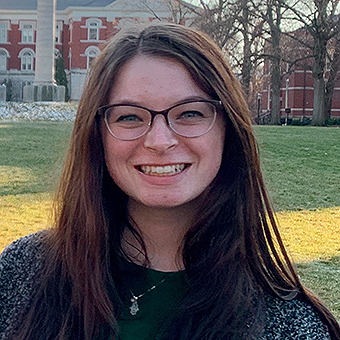
Thalia Sass is a PhD Candidate of Molecular and Cell Biology in the lab of Dr. Susan Lovett. She is investigating the dynamic DNA damage responses of E. coli bacteria to better understand how cells respond to stress. Thalia enjoys making writing accessible and finding new ways to communicate science within her community. Being the first scientist in her family, Thalia has had a lot of practice translating core scientific concepts, as well as cutting-edge research, to audiences of all experience levels. Scientific discovery has an innate beauty by pushing the bounds of how we understand the natural world. As scientists, Thalia believes we should be sharing this new knowledge far and wide! Thalia will happily work with you on all sorts of writing projects, presentations, or applications to highlight you and your science.
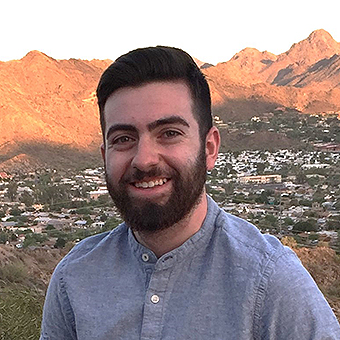
Tim Walsh is a Chemistry PhD student in Professor Isaac Krauss’ research group where he synthesizes sugar clusters that mimic the structure of the HIV envelope in order to elicit antibody response. He hopes his work will contribute to developing an HIV vaccine. Tim has lived in Massachusetts for his entire life, so he is always happy to talk about fun things to do in the area. He graduated from Tufts University in 2019 before beginning work as a synthetic organic chemist at Cambridge Isotope Labs in Andover, MA. With the help of his peers and mentors in both academia and industry, Tim has come to appreciate the importance of clear scientific communication. He is excited to help his fellow students build confidence in their ability to present their research in effective and engaging ways.
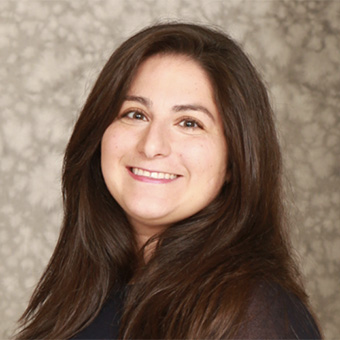
Anahita Zare joined Brandeis University in October 2020 as the SciComm Lab Director and MRSEC Director of Education, Outreach, and Diversity. As SciComm Lab Director, Anahita oversees Lab operations, provides support to Fellows, and grows the Lab to better serve Brandeis's research community. Since joining the Lab, Anahita has trained Fellows, organized workshops, and supported Fellows through their one-on-one appointments with clients. Anahita is particularly passionate about training Brandeis’s graduate students and postdocs in effective science communication because it bolsters the quality of research generated at Brandeis. Welcome to the SciComm Lab!